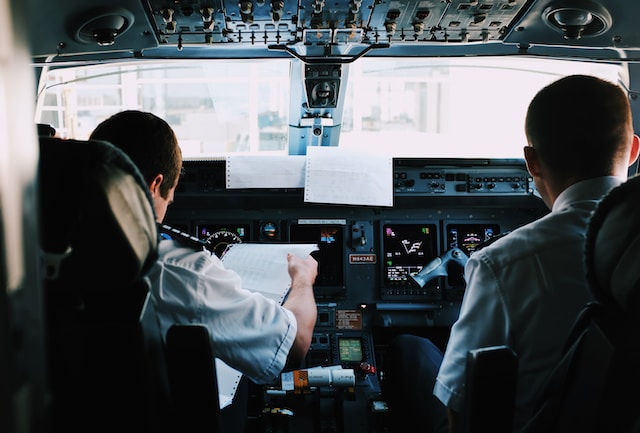- Becoming a helicopter pilot requires commitment, both financially and physically.
- A discovery flight is a great way to experience what it feels like to control a helicopter before committing to training.
- Choosing the right flight school and training program that aligns with your goals, learning style, and budget is important.
- Proper financial planning is necessary for sustaining living expenses while undergoing training.
- Continuous learning through self-study, specialized classes, and networking is crucial for a successful aviation career.
Embarking on the journey to become a helicopter pilot is an exhilarating decision. The path requires physical skill, mental fortitude, and substantial commitment. Whether you aspire to fly for emergency services, news coverage, charter services, or personal fulfillment, the thrill of controlling such a dynamic machine is unmatched. However, reaching this goal involves several steps, each crucial in shaping your future aviation career. Below are five comprehensive tips to guide you through this exciting venture, steering you closer to actualizing your dreams.
1. Understand the Requirements and Commitments
Before you dive into the world of aviation, it’s critical to comprehend what becoming a helicopter pilot entails. It’s not just about the glamour of flying; it involves stringent requirements in terms of education and medical fitness.
Remember, becoming a helicopter pilot is a significant investment of time and resources. From attending classes to logging flight hours, you need to commit wholeheartedly. Balancing this with personal obligations requires serious dedication, so ensure you’re ready for this undertaking.
Here are some requirements to become a helicopter pilot:
Master the Fundamentals
As a prospective helicopter pilot, you must excel in several key areas. You’ll need a strong understanding of aerodynamics, aviation regulations, navigation, and meteorology. You must also demonstrate proficiency in operating helicopter controls. These technical skills are best honed through consistent practice and study. Don’t rush through your training; instead, focus on thoroughly understanding each aspect of piloting.
Log Your Flight Hours

Experience is crucial in aviation. The number of flight hours you log can greatly influence your career opportunities. Therefore, be prepared to spend considerable time practicing your flying skills. This includes both dual flight time, where you fly with an instructor, and solo flight time, where you pilot the aircraft alone.
Maintain Your Physical and Mental Health
As a helicopter pilot, your physical and mental well-being are paramount. Regular health check-ups, a balanced diet, consistent physical exercise, and addressing any stress or mental health concerns are all essential aspects of a successful aviation career. Remember, your overall health can heavily influence your ability to make sound decisions in high-pressure situations.
Build Your Network
Building relationships within the industry can open doors to opportunities that may not be accessible otherwise. Attend industry events, join aviation-related organizations, and connect with fellow pilots and aviation professionals on social networking sites. A strong network can provide valuable advice, industry insights, and job opportunities.
2. Start with a Discovery Flight
There’s a vast difference between the fantasy of flying and the reality. Before you invest heavily in helicopter pilot training, schedule a discovery flight. Many flight schools offer these at a reasonable cost, allowing you to experience firsthand what it feels like to control a helicopter.
During this introductory flight, you’ll learn basic control maneuvers, the principles of flight, and what to expect from the training process. More importantly, you’ll be able to discern whether this activity genuinely resonates with your passions. It’s an opportunity to reflect on whether you’re prepared for the commitment ahead and if the sensation of flying aligns with your expectations.
3. Choose the Right Flight School and Training Program
Not all flight schools are created equal. Selecting a school and program that aligns with your career goals, learning style, and financial capabilities is imperative. Look for schools certified by the Federal Aviation Administration (FAA) with experienced instructors. Investigate the school’s fleet and facilities, ensuring they’re up-to-date and well-maintained.
Consider the location and weather patterns, as these will impact your flight training and experience. Review the curriculum and training modules, ensuring they offer comprehensive education, from ground training to actual flight sessions. Don’t hesitate to meet with instructors to discuss their teaching approach, experience, and track record of student success.
4. Prepare Financially for the Journey

Flight training is a costly endeavor. Beyond the tuition, you’ll need to cover the costs for examinations, licensing, additional flight hours, and miscellaneous expenses like study materials or equipment.
Plan your budget early, taking into account all potential expenditures. Explore various financing options, such as scholarships, financial aid programs specific to aviation students, or personal loans. Some flight schools offer payment plans or partnerships with financial institutions familiar with aviation career trajectories.
Financial preparation isn’t just about finding the funds. It’s also about strategic budgeting, ensuring you can sustain your living expenses without compromising the quality of your education and training. The key is to avoid unexpected debts that could derail your progress.
5. Dedicate Yourself to Continuous Learning
Becoming a proficient helicopter pilot involves more than just passing tests. It’s a continuous learning journey. Beyond your formal education, engage in self-study, stay updated with the latest aviation trends and technologies, and consider joining aviation clubs or online communities. These platforms can be invaluable for support, advice, and job opportunities.
One of the most crucial steps in your continuous education journey involves enrolling in specialized helicopter classes. These classes offer advanced training, preparing you for various scenarios and enhancing your employability. They might include emergency response techniques, instrument training, or courses in specific helicopter models.
Closing Thoughts
Achieving your dream of becoming a helicopter pilot involves dedication, resilience, and strategic planning. By understanding the commitments involved, experiencing a hands-on introduction, selecting the right school, securing your finances, and immersing yourself in continuous learning and networking, you have a solid path toward your career in the skies.
Each step is designed to get you closer to earning your wings and evolve into a skilled, well-rounded aviator ready for the multifaceted demands of helicopter piloting. Stay focused on your aspirations, and remember: the sky is merely the beginning.

